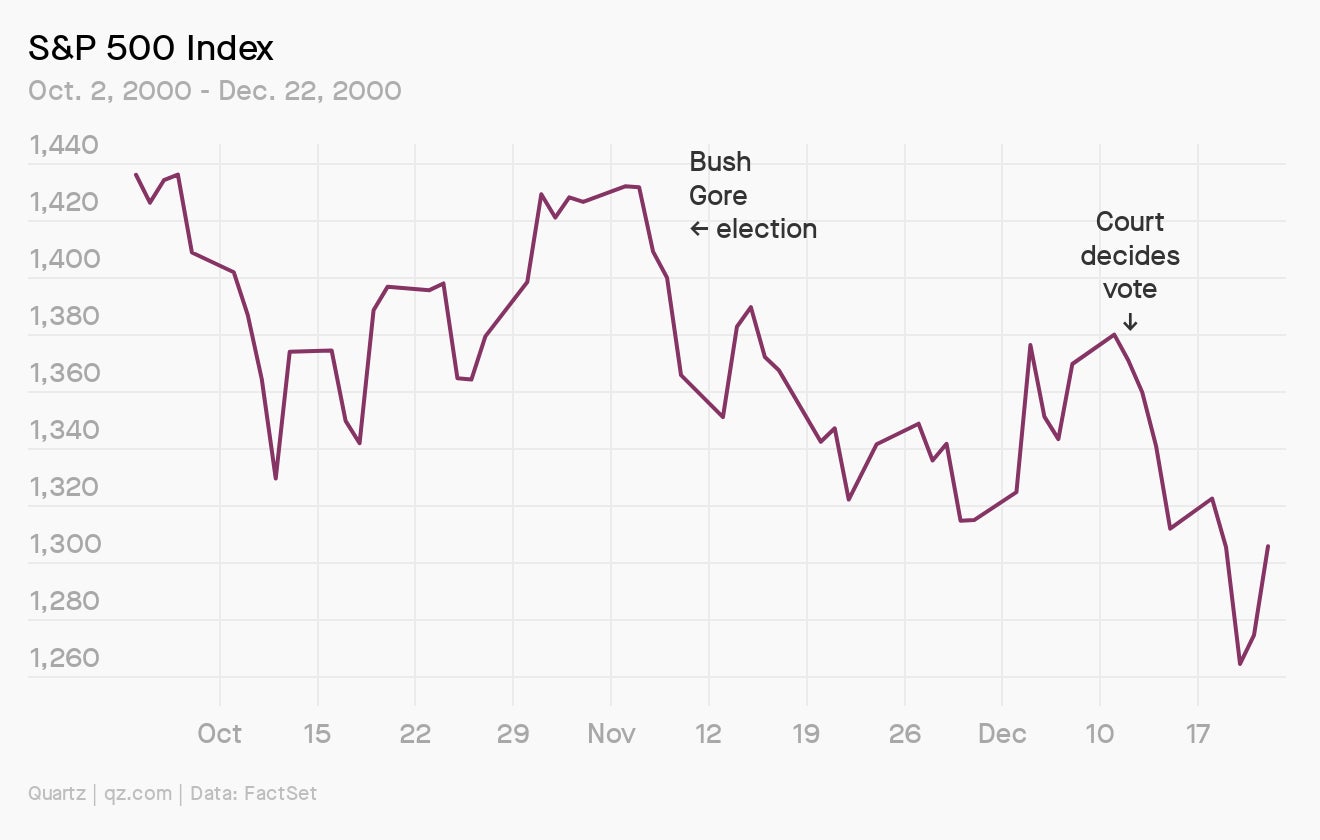Trump’s tax returns, Armenia vs. Azerbaijan, complicated planes
Good morning, Quartz readers!

Good morning, Quartz readers!
Here’s what you need to know
Donald Trump frequently paid no federal income taxes. A New York Times investigation based on tax filings over two decades shows the president paid just $750 in federal income tax in 2016 and 2017, and no income taxes in 10 of the past 15 years. The revelations come ahead of the first debate with challenger Joe Biden on Tuesday. Separately, Trump named as his Supreme Court nominee Amy Coney Barrett, a conservative.
Michael Gove heads to Brussels. The senior British cabinet minister will meet with European Commission vice president Maroš Šefčovič to discuss the Brexit divorce deal, ahead of the resumption of formal negotiations tomorrow on a post-Brexit trade deal. The last round of talks ended when the UK government introduced a bill that would override parts of the existing EU-UK withdrawal agreement.
Armenia and Azerbaijan clashed over disputed territory. A decades-long conflict over the Nagorno-Karabakh region, which is internationally recognized as part of Azerbaijan but controlled by ethnic Armenians, erupted yesterday, with at least 16 killed as both countries declared martial law.
Swiss voters rejected an end to free movement with the EU. A referendum called by the rightwing, anti-immigration Swiss People’s party to limit the number of foreigners allowed to work in the country was defeated by nearly 62% of voters. The country’s justice minister had called the proposal “worse than Brexit.”
TikTok remains in US app stores—for now. A federal judge issued an injunction temporarily blocking Trump’s order to bar downloads of the viral video app. However, a broader ban is still set to take effect on Nov. 12 that would render the app effectively unusable. Meanwhile, the US imposed restrictions on exports to SMIC, China’s largest chipmaker, over the firm’s alleged military ties.
What to watch for
Monday: China allows foreign workers to return, and the UK starts issuing £10,000 ($12,800) fines for breaking self-isolation rules.
Tuesday: Trump debates Democratic challenger Joe Biden, Japanese prime minister Yoshihide Suga and Russian president Vladimir Putin hold a phone meeting, and NASA launches a new $23 million space toilet.
Wednesday: Palantir’s IPO is expected, and Google holds its Pixel 5 smartphone launch event.
Thursday: Hong Kongers plan to protest on China’s national day, but police have banned a scheduled march.
Friday: US nonfarm payrolls are released.
Charting transitions of US presidential power
Modern US history suggests that contested elections, resignations, and even assassinations of presidents aren’t systemic risks. But that history doesn’t include a sitting US president refusing to commit to a peaceful transfer of power.


If Donald Trump loses in November and denies the result, will global investors lose confidence in the rule of law underpinning the entire US financial system? Read more here.
The virtual, borderless team

The coronavirus pandemic has prompted countries to shut down their borders and turn inwards. But it has also shown the value and potential of a phenomenon borne out of globalization: the borderless team.
As we work out of our living rooms, connected to teammates by Zoom and Google Meet, we are being asked to leapfrog distances, across cultural contexts and geographies. In order to work productively, we’ve had to understand the lives of colleagues across the globe in ways we didn’t before.
The ability to work productively across these distances was already an asset before the pandemic. Now it’s a necessity. What can we learn from teams that are built to overcome—and even harness—massive geographic spans and cultural differences to do their work? Learn more in our latest field guide.
✦ To gain access to all the stories, presentations, field guides, workshops, and more available exclusively to Quartz members, sign up for your Quartz membership today!
Obsession interlude: Borders
🚧 Borders are arbitrary lines on a map, but they have real impact on where we live and work, and the ways we trade and transact. How porous or rigid they are is determined mainly by policy, sometimes geography, and occasionally by sheer human will. Tax havens, visas, human migration—they all are evidence of a global economy that operates across states and in the spaces between them.
What does it mean to be obsessed with borders? We asked deputy finance and economics editor Ana Campoy to explain how she defines it, starting with the word itself:
“Border” is a squishy word. Its definition, according to Merriam-Webster, is pretty simple: an outer part or edge. Yet its meaning quickly gets complicated as you go through its lengthy list of synonyms. A boundary is a limit, the end of something. A frontier, meanwhile, is what’s in front, beyond the limit. A demarcation is a line to mark or divide, while a threshold is an opening. Borders can be all of these things, sometimes at once.
For a framework of how to make sense of this jumble, look to Chicana theorist, poet, and border dweller Gloria Anzaldua. Read her 1987 Borderlands for a sophisticated, nuanced, and illuminating take on borders that still resonates today:
“We are faced with the fear that if we open up our hearts and embrace our visitors, they will take over our house. Not only that, but that they are going to be disrespectful to us in our own house. How can we say that this is our house, but it is also their house, without inviting a takeover? How much do you make accessible to the other and how often do you say ‘Stop right there.’?”
In other words, borders are a constant negotiation. Through our coverage, we’re exploring how countries, people, and companies are constantly figuring out where to draw the line.—Ana Campoy
Follow our Borders obsession here.
Surprising discoveries
Traveling back in time is theoretically possible. Researchers addressed the so-called “grandfather paradox” by arguing that even if you change the past, the timeline can self-correct to ensure that whatever sent you back in time would still happen.
A brain-eating amoeba was found in a US city’s water supply. Tests confirmed the presence of aegleria fowleri, which can cause fatal brain infections.
The complicated assembly of the final superjumbo airliner is complete. The last ever double-decker Airbus 380 rolled off the production line with 4 million parts from 30 different countries.
108 pilot whales were freed in Australia. The release concluded five days of rescue efforts in a mass stranding that left 350 other pilot whales dead.
Weather-resistant wildfires have been smoldering underground in Siberia for five years. “Zombie fires” can outlast harsh winters and are a growing problem in Arctic areas of Russia.
Our best wishes for a productive day. Please send any news, comments, logical time travel, and rescued whales to [email protected]. Get the most out of Quartz by downloading our iOS app and becoming a member. Today’s Daily Brief was brought to you by Mary Hui, Tripti Lahiri, Karen K. Ho, Heather Landy.